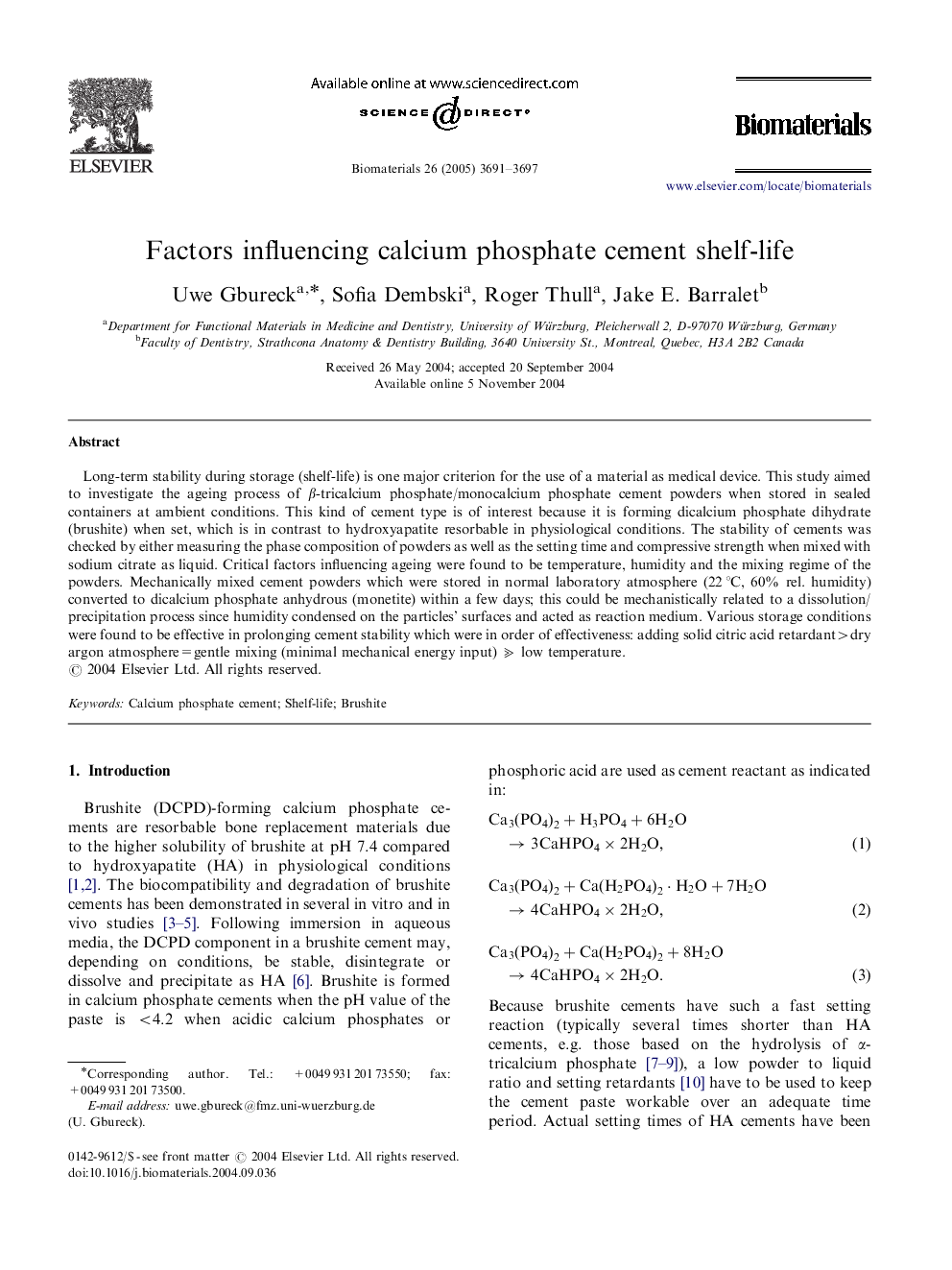| Article ID | Journal | Published Year | Pages | File Type |
|---|---|---|---|---|
| 12750 | Biomaterials | 2005 | 7 Pages |
Long-term stability during storage (shelf-life) is one major criterion for the use of a material as medical device. This study aimed to investigate the ageing process of ββ-tricalcium phosphate/monocalcium phosphate cement powders when stored in sealed containers at ambient conditions. This kind of cement type is of interest because it is forming dicalcium phosphate dihydrate (brushite) when set, which is in contrast to hydroxyapatite resorbable in physiological conditions. The stability of cements was checked by either measuring the phase composition of powders as well as the setting time and compressive strength when mixed with sodium citrate as liquid. Critical factors influencing ageing were found to be temperature, humidity and the mixing regime of the powders. Mechanically mixed cement powders which were stored in normal laboratory atmosphere (22 °C, 60% rel. humidity) converted to dicalcium phosphate anhydrous (monetite) within a few days; this could be mechanistically related to a dissolution/precipitation process since humidity condensed on the particles’ surfaces and acted as reaction medium. Various storage conditions were found to be effective in prolonging cement stability which were in order of effectiveness: adding solid citric acid retardant>dry argon atmosphere=gentle mixing (minimal mechanical energy input) ⪢ low temperature.
